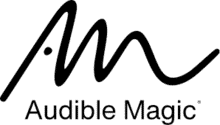Twitch Streamers Hit with Tidal Wave of DMCA Notices

Over the past few days, streamers at Twitch.tv have been hit with an influx of Digital Millennium Copyright Act (DMCA) notices for older videos that were recorded between 2017 and 2019.
The notices, which appear to have been filed by the Recording Industry Association of America (RIAA), targets songs that appear in videos on demand (VODs) that are available on the site.
At Twitch, streams are only archived for a maximum of 60 days. However, streamers can create highlight clips that can be saved and viewed indefinitely, referred to as VODs. Many popular streamers have thousands of such clips and they are now worried that, should they get hit with just three DMCA notices, that they may have their account suspended or terminated.
This has resulted in an outpouring of anger and frustration as streamers wonder why there’s a sudden wave of notices now and for older content.
Twitch, for their part, acknowledged that the issue is ongoing and advised that streamers remove any old clips that may have unlicensed music in them.
However, that may be a challenge not just due to the volume of such clips that many users have, but because the current Twitch UI only allows for the removal of a few at a time.
To make matters even worse, several users reported that they could not even get their older videos to load in their dashboard, making them impossible to remove.
Twitch has said that it is working on solutions and “examining how we can give you more control over your clips.” Twitch has also made it clear that nothing in their music guidelines have changed.
Still, the situation is very much unfolding and it’s unclear if additional notices are being sent. In the meantime, Twitch users are left feeling uncertain and confused.
Why Now?

Contrary to some early reporting, Twitch has a system for automatically identifying and muting unlicensed music in clips. In 2014, the company signed a deal with Audible Magic and uses the service to automatically mute VODs that contain unlicensed music.
The way it works is that Audible Magic scans VODs in 30-minute chunks. If no unlicensed audio is detected, it’s not muted. If there is a match detected, it is. Users then have the ability to appeal that muting in their dashboard.
Such a system is designed to prevent DMCA notices by removing potentially infringing content from VODs in advance. Obviously, that didn’t work in this case and there are two potential reasons for it.
The first is that the content at issue is not part of Audible Magic’s database. This seems unlikely given that the music involved in the publicized notices are all fairly popular songs, but any content matching service is only as good as the database it can match against.
The second is that there may be an issue with the matching algorithm. To be clear, this is not an indication that Audible Magic’s product is flawed, but that the settings Twitch is using may not line up with what the RIAA is looking for. For example, if Twitch were looking for clips a minute or longer but the RIAA was looking for 30 seconds or longer, it’s easy to see how you could get a lot of 30-60 second audio clips left up and later targeted for copyright strikes.
As for why these notices are coming now, it’s impossible to say for certain but the answer is almost certainly technical. The RIAA, as well as other large rightsholders, rely on bots to spot suspected infringements. Even if the notices are filed by a person, they are usually identified with a bot first.
If those bots couldn’t look through Twitch VODs until recently that would explain it. So would a change in what the bots are looking for, such as looking for shorter samples or different tracks.
Basically, you have a situation where Twitch and the RIAA are both using bots to spot unlicensed music but, for reasons that are unclear, those bots are not in agreement as to what is and is not infringing. Where that difference is, DMCA notices come flying.
What Can Users Do?
For Twitch users and streamers, this is a stark reminder to never use unlicensed music in your streams and VODs. Even if you feel strongly that what you are doing is fair use, that doesn’t protect you from the bots.
For example, on YouTube, Content ID handles about 98% of all copyright disputes. In many places online, the actual letter and even the spirit of copyright law is secondary to appeasing the bots that watch over the site and all of this is without the new European Copyright Directive. Instead, this comes from many of these platforms being too big to police, making such bots necessary.
The entire purpose of these systems is to minimize the number of DMCA notices that are filed. Clearly, something went wrong with that here.
This, however, leaves little option for the impacted users. If you have a large number VODs that might be an issue, deleting them is truly the best answer. However, as we noted above, that may be nearly impossible due to technical issues on Twitch’s side.
Ultimately, this isn’t a problem that users can resolve. Twitch itself needs to take steps including giving users better control over their videos and fixing whatever issue made this wave possible. Either the audio wasn’t infringing and the notices should have been set aside or their automated tools should have caught songs before it came to this.
Waves of DMCA notices like this one don’t help anyone, including rightsholders. This is a big part of why there’s a push to alter the DMCA.
For right now, it seems as if all users can do is pressure Twitch to fix these issues and hope that they don’t lose their channel in the meantime.
Bottom Line
As much griping as there is about bots how they impact the platforms they’re used on, they aren’t going away. Even if Twitch, YouTube and everyone else that relies on bots to help with copyright enforcement dropped them tomorrow, rightsholders still have theirs and can use them to detect and file DMCA notices against allegedly infringing materials.
As annoying as Content ID-like systems might be, they are still preferable to waves of DMCA notices and that preference is for everyones. Users have lighter actions taken against their content, rightsholders don’t have to send the notices and hosts don’t have to process them.
Copyright bots are often annoying and do make more than their share of mistakes, but they are still far better than the alternative.
Regardless of DMCA reform or the new European Copyright Directive, the bots are here to stay. This wave of DMCA notices is a sample of what happens when the bots fail to resolve the issue (for whatever reason) and relatively minor mutings turn into much more serious DMCA notices.
There is no perfect system here. There is not even a truly good answer. But there are less horrible ones and that’s what Twitch needs to get back to for everyone’s sake.
Hat Tip: Thank you to @Pessimism for alerting me to this story!
Want to Reuse or Republish this Content?
If you want to feature this article in your site, classroom or elsewhere, just let us know! We usually grant permission within 24 hours.
